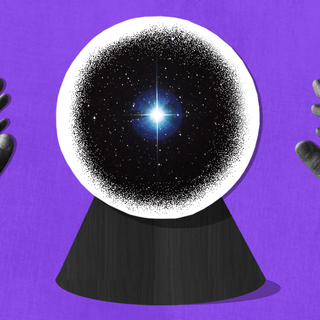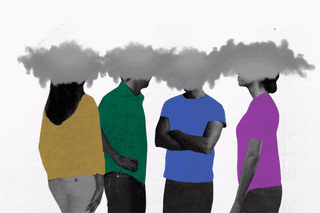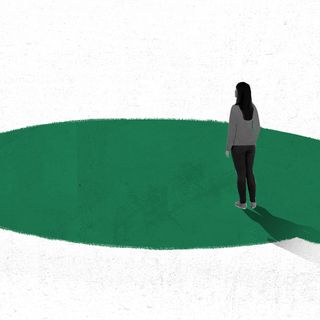
Has the Pandemic Made Us Less Interesting Than We Used to Be?
“It’s like I have literally forgotten how to communicate … [but] I find myself more authentic and free alone.”

“It’s like I have literally forgotten how to communicate… [But] I find myself more authentic and free alone.”
The weight of feeling dull and unenthused weighs on K*, 20. It’s as if nothing of interest has happened to her, much like the pandemic-stricken world. For many, this stasis has inspired a personal crisis, one where they find themselves lacking the eagerness to strike conversations or do conventionally “interesting” things. One may wonder: have two years of lockdown, grief, and trauma dulled our personalities?
***
There is neither a universally accepted definition of what is interesting nor is it possible to quantify how interesting one is. But we have mutually agreed on core points forming the script of the “fun act.” One where bucket lists, new experiences, adventurous and spontaneous stories, and new knowledge are characterized as interesting. Psychology experts and life coaches too are quick to suggest ways of inventing a sparkling personality: learn new skills, be curious, have three stories ready to share, ask good questions.
However, this “How to Be Interesting 101” playbook may not quite hold when living in a pandemic vacuum. The same series of facts about the virus, fears, and concerns play on loop, “repeated over and over with only minor differences.” People find themselves dull and boring, unable to impress or interest others. Anecdotal evidence, assorted from across the globe points to fatigue and boredom. A New York Times article identified the resultant blah feeling as one of “languishing”; “the void between depression and flourishing — the absence of well-being.”
“There are so many terms and conditions, so much to take into consideration before doing little things… Everyone is as dull as you are and there is no fun anymore,” Jalasmi, 26, says. “And by the time we recover from one lockdown, there is another one and it has become a cycle.” The resulting lack of new experiences makes it hard to come up with new ideas or conversations – things associated with feeling interesting.
The subjectivity intrinsic to feeling interesting naturally pushes a crisis onto people. “Society has assumed if less enthusiasm is shown or if people seem dull, that means they are no longer interesting. Just like that, a decision is made,” says Nidhi Thakore, a clinical psychologist.
Related on The Swaddle:
The Pandemic Has Changed Intimacy For Good
But this assumption may be misplaced. There are two theories that may help explain why the current reality amplifies the feeling of beinguninteresting like a boom box. This might be explained by something called the salience bias. People focus “on items that are more prominent or emotionally striking and ignore those that are unremarkable, even though this difference is often irrelevant by objective standards.” Think the perceived value of going on a hike with a group of people as opposed to playing a mobile game alone at home. That is, in the absence of conventionally interesting things to do, we automatically devalue our personalities.
***
The lack of social activities has undoubtedly left a gnawing gap. “The human need for the stimulation we previously got from being with others has to be provided for ourselves,” said Gavin Morgan, vice-chair of the British Psychological Society’s division of educational and child psychology. Our micro-interactions in society, courtesy of friends and strangers, need other channels of release. Morgan explained how these needs are then met through personal mannerisms – new and old.
In line with this, research from April last year came to the conclusion that people were developing unusual mannerisms during the lockdown. Talking to oneself, being more experimental with fashion, and plumbing new depths of one’s interests. Mark Webb, for instance, became unusually close to his garden wildlife. “I have individually named the birds who visit the feeder in the garden. The pair of nuthatches are Nigel and Norma, the blue tits are Bobby, Brian and Brenda,” the 58-year-old told The Guardian.
Moreover, we know the brain prefers novelty, new and different experiences help us learn. But in the absence of change, people find interest in what they know. Like the white rabbit, the pandemic may thus have us chasing down the holes of our personalities and interests. This could also be a way to cope with the stressors of the pandemic, Thakore notes.
When we revisit what it means to be “interesting” in this vacuum, the definition feels distant. “Now it is replaced with life experiences related to hardship, resilience, and hope, shared grief, coping skills,” Shubhangi More, a counseling psychologist, tells me. “We have reached the point wherein individual stories [of spending time alone, doing unusual things] comfort us better than knowing about someone’s vacation.”
***
In his newsletter, researcher Rohit Krishna tackled this collective feeling of being “less interesting” as a society – one that predates even the pandemic. He argues it is not because we’re somehow “lesser” but rather that “we’re as a species standing in front of a chasm too wide to jump in one leap, waiting to either spring higher or make better intermediate platforms to launch from.”
If the pandemic is a chasm, making this jump may require us to change – or become more self-aware and authentic to the people we originally were.
Related on The Swaddle:
Why We Are Turning to Retail Therapy to Cope With Quarantine Boredom
There might thus be a hint of revolution in all this. A social coda exists to determine what is exciting – and what is not. People try to engineer the way they present themselves to the world, and go on to analyze the performance afterward. Did I laugh at the right time? Did I interject with the right repartee? There is the inescapable desire to come across as fun and charming and the fear that others might see us as dull and predictable.
But perhaps there lies liberation in the empty space created by the pandemic. The fact that everyone is stuck at home, in a way, alleviates the pressure to constantly be doing what is deemed interesting or productive.
Many like Satyabhan, 23, have found solace and contentment in this space. Over the last few months, he has been coloring the Goldilocks and the Three Bears book. The 23-year-old often hears dismissive remarks from his friends; some call him boring, others encourage him to get out of his house.
“But I know one thing – I am definitely not dull.”
Nidhi makes sense of this reconciliation with oneself as follows: “In the course of the pandemic, some individuals have resorted to simple, fuss-free things as their way of unwinding and coping, and that can be interesting as well rather than just quiet or dull.”
Take Jalasmi, whose renewed definition of fun is to spend time indoors. “No one has anything new to say. It’s better to read a book than talk about life,” she quips.
“I think our definitions of what’s interesting have somewhat swapped since Covid19 happened,” Shubhangi notes “Social norms have certainly changed in the period of covid. Grief and trauma have a lot to do with this switch.”
What people may have hid as “less interesting” parts of their personalities could actually be the more striking ones; the ones deemed too “ordinary” or basal to come out, the ones dismissed in a world where everyone wants to be special and different. “Now I just act based on how I’m feeling…” a Reddit user admitted. The sentiment is of someone who can see all the lines of code after freeing themselves from the Matrix.
Does this renewed understanding of oneself mean people will work on themselves more? Nidhi thinks it will be incredible “if these very eccentricities help the individual to be more self-aware and realize things about themselves they probably never had an idea about.”
At a time when we feel as though we’re dissolving into thin air and our grasp on reality is shaky at best, the time spent with ourselves can help bind contentment and authenticity in an inexplicable bond.
Arguably, it can also help people heal. Curating an Instagram page with poetry. Gifting self-made paintings to loved ones. Getting drunk for the first time. These are the three things K.*, effortlessly lists when asked what she found interesting over the last two years.
Poetry, painting, feeling limitless.
Shubhangi wafts a poignant conclusion: “I hope people can accept themselves even once the pandemic is over.”
* Name changed to protect anonymity.
Saumya Kalia is an Associate Editor at The Swaddle. Her journalism and writing explore issues of social justice, digital sub-cultures, media ecosystem, literature, and memory as they cut across socio-cultural periods. You can reach her at @Saumya_Kalia.
Related


We Linger On People’s Minds After Conversations Longer Than We Think
